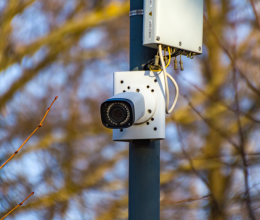
Massachusetts Data Privacy Act would protect people’s privacy, including sensitive cellphone location information
A bill released today by the Joint Committee on Advanced Information Technology, the Internet and Cybersecurity would meaningfully safeguard people’s privacy and safety in the digital age. The Massachusetts Data Privacy Act includes policy proposals backed by the ACLU of Massachusetts, including provisions to limit data collection; treat sensitive health and biometric data with extra care; and limit the sharing and sale of personal data, including cellphone location data. The bill also includes specific accountability mechanisms to ensure people’s privacy rights are meaningfully protected and enforced.
Kade Crockford, Technology for Liberty program director at the ACLU of Massachusetts, released the following statement in response:
“We thank Committee Chairs Representative Tricia Farley-Bouvier and Senator Michael Moore for their thoughtful work on this landmark data privacy legislation. Without regulation like the Massachusetts Data Privacy Act, companies are incentivized to collect and manipulate unlimited quantities of personal data about all of us – learning things about our health, our families, our financial status, our location, our beliefs, and more. Such information can then be used to make discriminatory predictions about people's health outcomes, deny people housing or jobs, hike insurance rates, and even target and harass people seeking or providing reproductive health care. What's more, many kinds of data, including cellphone location information, can be sold to anyone with a credit card. People should be free from the fear that everything they’re doing online, and everywhere they go, is being monitored and shared. We applaud the Committee for taking meaningful steps to protect the privacy, security, and personal safety of all Massachusetts residents. We urge the legislature to act quickly and boldly to pass this crucial data privacy legislation.”
Among the bill’s core provisions, the Massachusetts Data Privacy Act would:
- Ban the sale of cellphone location data, by incorporating provisions known as the Location Shield Act;
- Ensure companies do not collect or process more data than necessary to provide a specific product or service requested by the consumer, creating baseline data-minimization protections in Massachusetts law;
- Provide enhanced data-minimization and transfer standards for especially sensitive types of information, like biometric and health data;
- Protect people against new forms of digital redlining and other forms of data discrimination;
- Ensure compliance by allowing people to sue to enforce the law when it is violated; and
- Prohibit the use of sensitive data for targeted advertising and grant people the right to opt out of having other data used for such targeted ads.
In June, Reproductive Equity Now, the ACLU of Massachusetts, and Planned Parenthood Advocacy Fund of MA launched “Your Location: It’s None of Their Business,” a campaign calling on lawmakers to ban the sale of cellphone location data. The campaign is supported by over 40 organizations, including AFL-CIO, Anti-Defamation League New England, Jane Doe Inc., TransHealth, and more. Massachusetts Attorney General Andrea Joy Campbell has also joined the call to ban the sale of cellphone location data in Massachusetts.
For more information about the Location Shield Act, go to: www.aclum.org/locationshield






